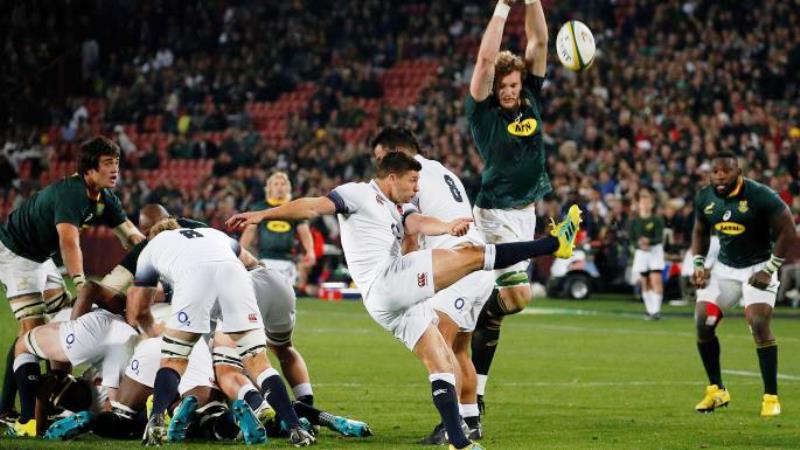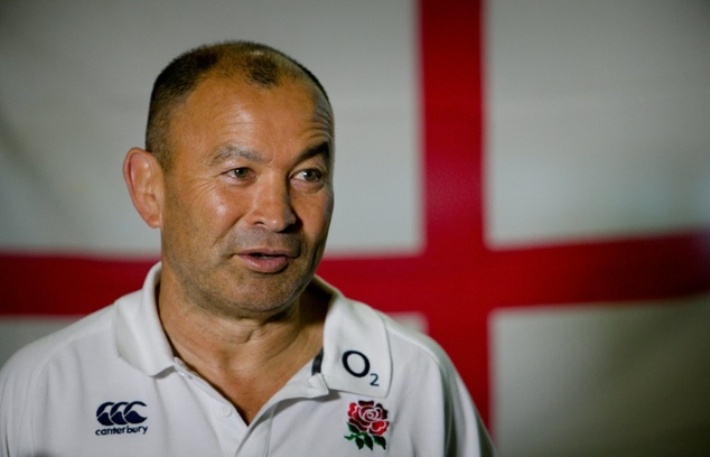
Even New Zealand suffer defeat now again, but losing five matches in a row is a worrying sign for a team with ambitions of dethroning the champion All Blacks at next year’s World Cup in Japan.
Yet that is the position an England side coached by Eddie Jones are in after Saturday’s 42-39 defeat by South Africa in Johannesburg.
It was only in January that England’s governing Rugby Football Union announced a contract extension for Jones.
Back then, the former Australia and Japan coach had won 22 of his then 23 Tests in charge of England since taking over after their first-round exit on home soil at the 2015 World Cup.
The dissenters, who pointed out there was no need for an extended deal at this stage and that none of Jones’s previous coaching jobs had lasted longer than four years, were told by RFU chief executive Steve Brown “a robust succession planning process” would avoid the “disruptive pattern” of changing the backroom team after a World Cup.
That may be true, but it is the immediate present that is England’s greatest concern.
A run of three successive Six Nations losses to Scotland, France and Grand Slam champions Ireland condemned England, who had been a bidding for a third straight title, to a fifth-placed finish — their worst in the Championship since 1983.
When he took over, Jones said he wanted to build a side based on the traditional English strength of a solid forward pack that would dominate the set-piece.
– Familiar failings –
Yet this season’s Six Nations saw cracks appear as England’s European rivals challenged the Jones juggernaut with a fast-paced game.
Saturday’s loss, a fifth in a row including a non-cap defeat by the Barbarians, was made all the more remarkable given England had surged into a 24-3 lead against a Springbok side missing its two leading hookers and first-choice locks.
Once again England’s familiar failings — the breakdown, a high penalty count and an inability to adapt to changing circumstances, as well as defensive frailty, returned to haunt them.
Yet the match produced some of England’s best attacking rugby of the Jones era, making their inability to close out the game out all the more frustrating.
“At times during the first 20 minutes we were brilliant and maybe we got seduced by the game,” Jones said.
The question is who is to blame, the players or the coach?
Certainly, taking someone off after just 36 minutes, as Jones did with lock Nick Isiekwe on Saturday, is arguably as much a reflection on the coach who picked him as the player himself.
– ‘Penalties my problem’ –
Jones has found himself involved recently in a public row with Bath owner Bruce Craig over the number of injuries sustained by players at England training camps.
He has defended a gruelling regime by insisting it is necessary to prepare the side for the rigours of Test rugby.
And yet a lack of stamina appeared to cost England dear in Johannesburg, with the way they faded suggesting Jones had made a mistake basing his side in Durban rather than at altitude for a game on the ‘highveld’ of Ellis Park.
Not that Jones, typically, was having any of that.
Some of his critics have suggested he needs to be less stubborn, but it may be asking a lot of the 58-year-old to change his ways now.
England, for all their huge playing resources, were without two natural leaders in injured regular captain Dylan Hartley and lock Joe Launchbury on Saturday
Their discipline again let them down as they conceded 12 penalties.
“It is hard to win any Test match with that number of penalties,” said Jones. “It is always my problem and we have to change the behaviour of the players. Sometimes that is not easy.”
Jones will likely still be England’s coach at the World Cup — to ditch him beforehand would be embarrassing for Twickenham chiefs given how strongly they’ve backed him– although a 3-0 series loss in South Africa would lead to awkward questions.
It all makes this weekend’s second Test in Bloemfontein the most important match of Jones’s Red Rose reign — a tag that will be applied to every England fixture until the losing streak ends. – Agence France-Presse






























